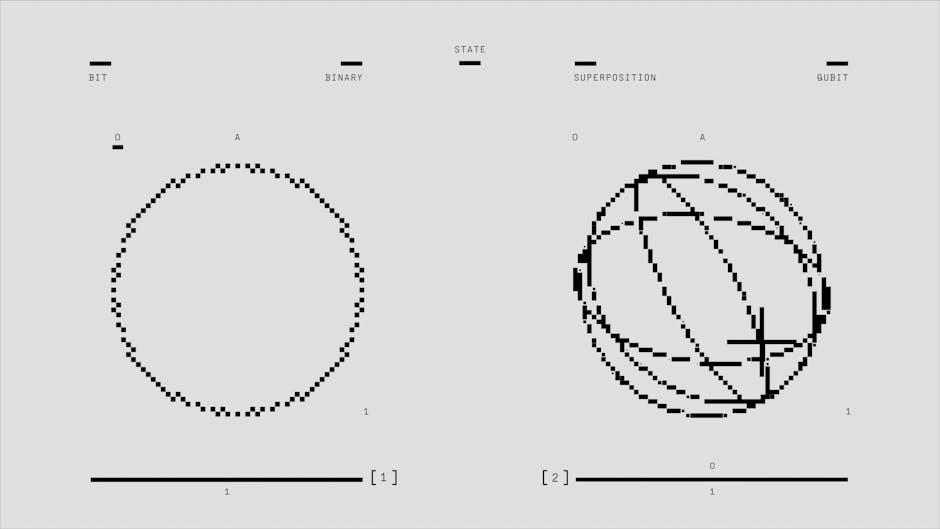How Quantum Computing Could Impact Game Physics – Revolutionizing Realism in Gaming
Quantum computing is no longer a futuristic fantasy reserved for scientists and tech enthusiasts; it is steadily making its way into various industries, including gaming. One area poised for a significant transformation is game physics. From enhanced simulations of complex environments to delivering unprecedented realism, quantum computing could reshape how physics engines operate in video games. In this comprehensive article, we’ll explore the potential impact of quantum computing on game physics, its benefits, challenges, and what the future might hold for game developers and players alike.
Understanding Quantum Computing and Game Physics
Before diving into the intersection of quantum computing and game physics, let’s briefly define these terms:
- Quantum Computing: A new paradigm of computing leveraging the principles of quantum mechanics, such as superposition and entanglement, to process complex calculations exponentially faster than classical computers.
- Game Physics: The simulation of real-world physics phenomena in games-such as gravity, motion, collision detection, fluid dynamics, and particle interactions-to create immersive and believable environments.
Classical game engines use deterministic algorithms to simulate physics but face limitations when scaling up for extreme detail or complex environments. Quantum computing, in contrast, holds the promise of tapping into massively parallel computations, unlocking capabilities classical machines can’t match.
Why Quantum Computing Matters for Game Physics
Game physics engines are critical for believable gameplay, but realistic physics calculations can be computationally expensive and slow. Here is where quantum computing shines:
- Accelerated Simulations: Quantum computers can process vast permutations of particle interactions simultaneously, allowing real-time simulations of complicated physics phenomena like fluid dynamics or multi-body systems.
- Higher Fidelity: With enhanced processing, developers could incorporate physics equations that model subtle effects such as friction, quantum effects, or even relativistic mechanics.
- Energy Efficiency: Quantum processors have the potential to perform these complex calculations while consuming less power compared to classical supercomputers, enabling more efficient gaming hardware solutions.
Potential Quantum Physics Applications in Gaming
1. Fluid Dynamics and Natural Phenomena
Realistic simulation of water, smoke, fire, and other natural phenomena requires advanced physics modeling. Quantum computing could simulate these processes with greater detail and responsiveness, improving immersion.
2. Complex Collision Detection
Collision detection in environments with thousands of interacting particles or objects often bottlenecks the performance. Quantum algorithms might analyze multiple collision scenarios in parallel, reducing lag and improving accuracy.
3. Procedural Animation and Soft Body Physics
Animating flexible objects such as cloth, hair, or deformable materials could become more realistic with quantum-enhanced calculations, offering smoother and more life-like movements.
4. AI-Driven Physics Adaptation
By combining quantum computing with artificial intelligence, game worlds could dynamically adapt their physical behaviors in response to player interactions or environmental changes, crafting truly unique gameplay experiences.
Benefits of Quantum Computing in Game Physics
| Benefit | Description | Impact on Gaming |
|---|---|---|
| Computational Speed | Solves complex physics problems faster by leveraging qubits. | Enables real-time detailed physics effects in large-scale worlds. |
| Parallel Processing | Simultaneous evaluation of exponential states improves simulations. | Smoother physics animations and reduced game lag. |
| Energy Efficiency | Quantum computations may require less power than classical ones. | Leads to longer gameplay on portable devices and better sustainability. |
| Enhanced Realism | Models subtle physics effects beyond classical capabilities. | More immersive and believable game environments. |
Challenges and Considerations
Despite its promise, integrating quantum computing with game physics is not without hurdles:
- Hardware Limitations: Quantum processors currently have limited qubits and error rates that complicate large-scale computations.
- Algorithm Development: New quantum algorithms tailored specifically for physics simulation in gaming are still in early research stages.
- Cost and Accessibility: Quantum computers remain expensive and not widely accessible for indie developers and small studios.
- Integration Complexity: Combining quantum computations with existing classical game engines requires novel hybrid approaches and middleware solutions.
First-Hand Experience and Case Studies
While fully quantum-powered games are yet to debut, several pioneering efforts offer glimpses of future possibilities:
- Quantum-Inspired Algorithms: Some studios are exploring quantum-inspired classical algorithms that mimic quantum speedups, enhancing physics calculations strategically.
- Research Collaborations: Partnerships between game companies and quantum computing firms like IBM and D-Wave aim to prototype applications that could influence game physics engines.
- Experimental Demos: Researchers have developed demos featuring quantum simulations of particle interactions that could eventually translate into stunning in-game effects.
Practical Tips for Game Developers Eyeing Quantum Physics
- Stay Informed: Follow quantum computing advancements, especially those targeting computational physics and simulation.
- Experiment Early: Investigate quantum simulators and cloud-based quantum computing platforms to prototype small physics models.
- Collaborate: Engage with quantum researchers and communities to learn about emerging algorithms applicable to game development.
- Optimize Hybrid Models: Focus on hybrid quantum-classical computing models that leverage existing hardware capabilities effectively.
The Future: What Could Quantum Computing Mean for Game Physics?
Quantum computing’s emergence offers the potential to redefine the boundaries of what’s possible within game physics, enabling hyper-realistic environments and physics-based mechanics that respond fluidly and in real time. Imagine games where every droplet of rain behaves uniquely, or where global weather, deformable structures, and fluid simulations run seamlessly on consumer-grade devices.
Such advances could herald a new era in gaming-one where immersion, interactivity, and realism reach heights previously deemed impossible. However, significant technical and economic challenges remain to be solved before quantum computing becomes a staple of physics engines in games.
Conclusion
Quantum computing stands as one of the most exciting technological frontiers that could transform game physics by offering unprecedented computational power and simulation capabilities. Although still in the early stages, this technology promises to elevate game realism, enrich player experiences, and push the creative boundaries for developers.
While widespread adoption may take years, proactive exploration of quantum algorithms and experimentation with hybrid approaches will prepare the gaming community for a quantum-powered future. For anyone passionate about the evolution of game physics and next-generation gaming technology, keeping an eye on quantum computing is a smart and exciting strategy.
Are you ready to witness how quantum physics revolutionizes your favorite games? The quantum era in gaming is just around the corner.











